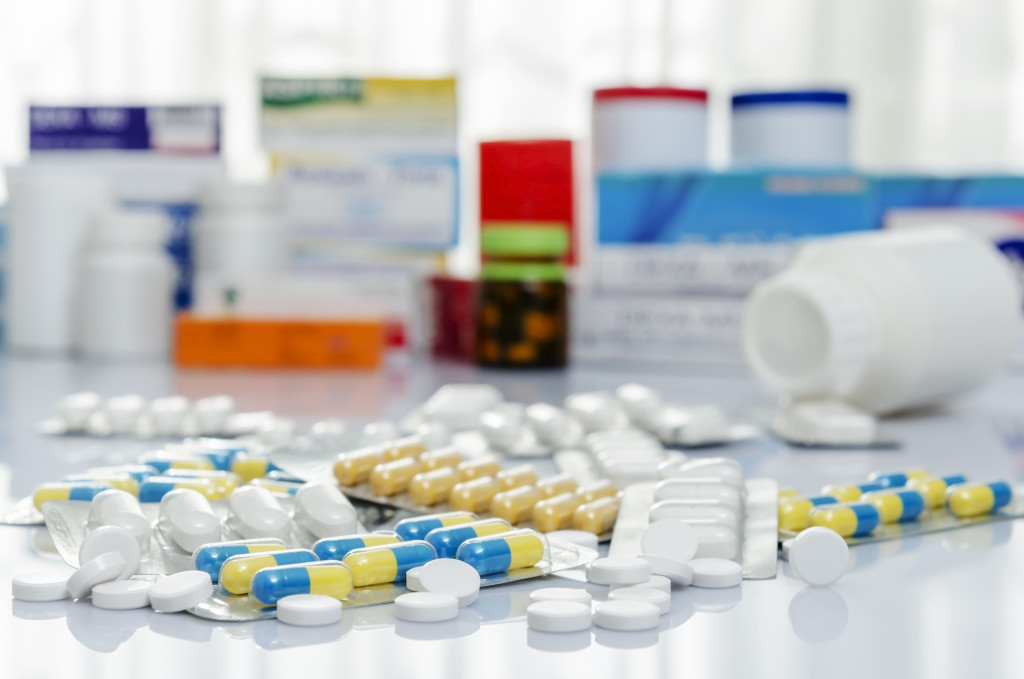- Collagen, the most abundant protein in the body, is essential for the health of skin, bones, and connective tissue.
- Collagen deficiency can lead to skin aging, weak bones and joints, digestive issues, and poor hair and nail health.
- Cardiovascular health is also at risk, with low collagen levels potentially leading to heart disease.
- Boosting collagen levels can be achieved through microneedling, collagen supplements, and a balanced diet.
- Prior consultation with a healthcare professional is necessary before making significant dietary changes or trying new treatments.
Collagen is the most abundant protein in the body and has various essential functions, including maintaining the strength and elasticity of our skin, bones, and connective tissues. A lack of collagen can have adverse effects on overall health. Here’s what you need to know about collagen, how it affects you, and how to deal with it.
What is Collagen?
Collagen is a fibrous protein that makes up approximately 30% of the total protein in the human body. It is found in various forms, including skin, tendons, ligaments, bones, cartilage, and blood vessels. This vital protein provides structure and support to our tissues and organs.
Importance of Collagen
Collagen is crucial for maintaining the strength, elasticity, and structure of your skin, bones, muscles, and ligaments. It also helps form a protective layer around your organs and supports healthy hair and nail growth. Additionally, collagen is essential for proper wound healing and maintaining a healthy digestive system.
Effects of Collagen Deficiency
Everyone can experience collagen deficiency over time. Here’s what you need to know about it:
1. Wrinkles and Fine Lines
The most visible sign of collagen deficiency is the appearance of wrinkles and fine lines on the skin. Collagen is responsible for maintaining the elasticity and firmness of the skin. As you age, collagen production decreases, leading to the loss of skin elasticity and the formation of wrinkles. Therefore, consuming a collagen-rich diet and using skincare products that promote collagen production is important.

2. Weak Bones and Joints
Collagen is essential for maintaining skin health and plays a vital role in keeping our bones and joints strong. A lack of collagen can weaken the bones and joints, leading to osteoporosis and arthritis. To maintain healthy bones and joints, consume a diet rich in collagen, calcium, and vitamin D and engage in regular physical activity that strengthens your bones and joints.
3. Digestive Issues
Collagen is also important for maintaining the health of your digestive system. It helps from the intestinal lining and prevents harmful bacteria and toxins from entering your bloodstream. Lack of collagen can lead to digestive issues such as leaky gut syndrome, IBS, and Crohn’s disease. To promote a healthy digestive system, include collagen-rich foods and probiotics in your diet.
4. Hair and Nail Health
A lack of collagen in your body can also affect the health of your hair and nails. Collagen provides nutrients to hair follicles and nail beds, promoting their growth and strength. A deficiency of collagen can lead to brittle nails and hair loss. So, consume collagen-rich foods and supplement your diet with vitamins and minerals that promote hair and nail health.
5. Cardiovascular Health
Collagen is also essential for maintaining the health of your heart and blood vessels. It helps maintain the elasticity and strength of your blood vessels, presenting the risk of heart disease. A collagen deficiency can lead to plaque formation in the arteries, increasing the risk of heart attacks and strokes. To maintain cardiovascular health, consume a diet rich in collagen, fiber, and healthy fats, and engage in physical activity that improves your heart health.
Ways to Boost Collagen Production
Thankfully, there are various ways you can boost your collagen production. Here are some of them:
Microneedling
Microneedling is a cosmetic procedure that uses tiny needles to create small punctures in the skin. Currently, there is the Morpheus8 treatment that uses microneedling with radiofrequency energy to stimulate collagen production and improve skin texture. This treatment triggers the body’s natural healing process, producing more collagen and elastin.

Collagen Supplements
Another way to increase collagen levels is through supplements. These supplements come in various forms, such as pills, powders, and liquids. They contain hydrolyzed collagen, which is broken down into smaller particles for easy absorption by the body. Regular collagen supplements can boost collagen levels and improve skin elasticity, joint health, and digestion.
Diet
A balanced diet is the best way to maintain healthy collagen levels. Consuming foods rich in amino acids, vitamin C, antioxidants, and omega-3 fatty acids can promote collagen production. Some of the best sources of these nutrients include fish, chicken, eggs, fruits, vegetables, nuts, and seeds.
Collagen is a vital protein that plays numerous essential roles in our body. A lack of collagen can adversely affect your skin, bones, joints, digestive system, hair, and heart health. By understanding the importance of collagen and ways to boost its production, you can maintain healthy levels of this crucial protein and promote overall wellness. Consult a healthcare professional before significantly changing your diet or trying new supplements or treatments.


